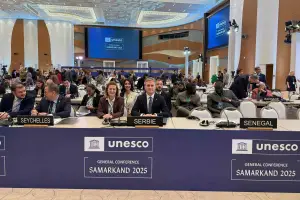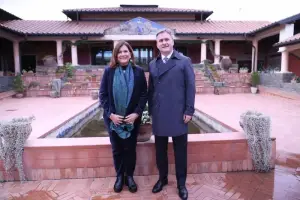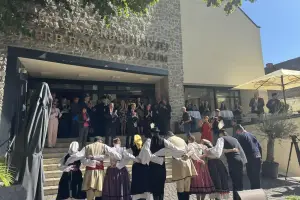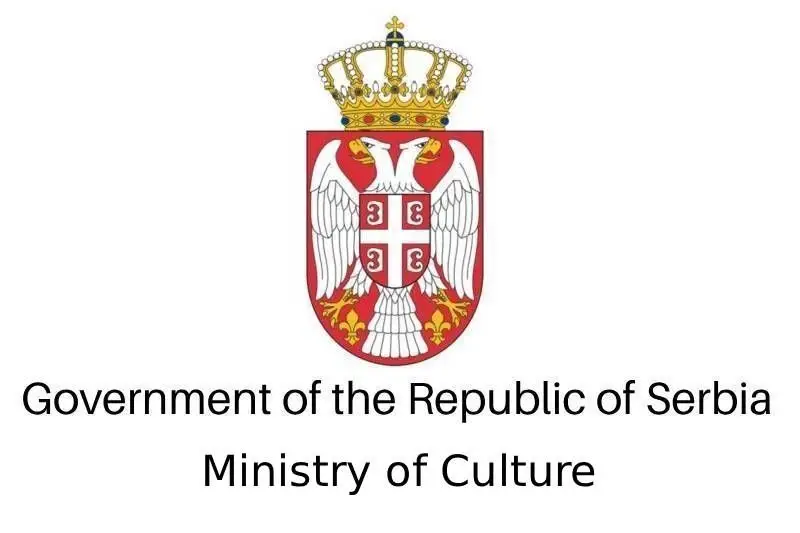The Ministry of Culture condemned the public signs and announcements of the initiative to ban the photo exhibition “Serbian Woman”, which was planned to be opened in Vukovar on 11 November on the occasion of Armistice Day.
- Serbia
Get to know Serbia
- Citizens
Culture and science
Health services
Pension and disability insurance
- Business
Employment
Economy
- Media
- Government
- Contact
Keep in touch
Keepin touch
Whether you have a question, comment, suggestion or any problem in the purview of the government, send us your message and we will try to respond as soon as possible. If your problem is not in our purview, we will forward your message to the relevant institution.
Initiative to ban photo exhibition “Serbian Woman” attack on historic memory
The Ministry of Culture also expresses deep regret for the reckless attack on historical memory, freedom of expression, contempt for the role of women in the horrors of war in which the whole world burned for the first time in its history for four whole years, as well as the arrogant trampling over one of the most sublime occasions on the world calendar, the day when peace came, at the end of the terrible First World War.
Unfortunately, it is obvious that neither the celebration of world peace, nor the role of women in war, which should not offend anyone, nor the global demand for respect for the right to freedom of expression and culture, represent an obstacle to the motive that is, unfortunately, prevalent and inexorable in present-day Croatia, to ruthlessly persecute everything Serbian, even the word Serbian, openly and cynically.
Moreover, what reveals the depth of cynicism is the belief that the very occasion or title of the exhibition is provocative.
Namely, it is an explicit belief that it is legitimate to say that the name Serbian, as undesirable, erases, say, among other things, the significance of Armistice Day and the role of women in it.
One would expect such impulses to be at least shyly or superficially concealed.
However, this is not happening, and what is clearly at work is the burden of revisionism, which, once it begins to falsify and distort history, drags with it its terrible burden of carelessness.
The deep sorrow and anxiety caused by this situation stems from the fact that the historical experience of the Serbian people in older and more recent history recognises the prohibition and persecution of culture, a kind of culturicide, not only as a symbolic outpouring of hatred, but also as an introduction to the suffering of epic proportions to which the Serbian people have been exposed several times in their history, according to a statement from the Ministry of Culture.
-
 Belgrade, 8 November 2025
Belgrade, 8 November 2025Croatia obliged to respond adequately to emergence of hatred, extremism against Serbs
-
 Belgrade/Cairo, 3 November 2025
Belgrade/Cairo, 3 November 2025Culture as foundation for enhancing overall relations between Serbia, Egypt
-
 Belgrade/Samarkand, 31 October 2025
Belgrade/Samarkand, 31 October 2025Serbia’s continued commitment to preservation of cultural heritage
-
 Požarevac, 24 October 2025
Požarevac, 24 October 2025Strengthening cooperation with Cyprus in field of cultural heritage protection
-
 Belgrade/Trieste, 18 October 2025
Belgrade/Trieste, 18 October 2025Exhibition on Ivo Andrić in Trieste new bridge of cultural cooperation with Italy
-
 Belgrade, 7 October 2025
Belgrade, 7 October 2025Condemnation of marking Serbian cultural heritage as Albanian
-
 Belgrade/Osaka, 5 October 2025
Belgrade/Osaka, 5 October 2025Virtual promotion of Serbian tradition, culture in Osaka
-
 Belgrade/Barcelona, 1 October 2025
Belgrade/Barcelona, 1 October 2025Cultural heritage as foundation of preserving national identity
-
 Belgrade/Barcelona, 29 September 2025
Belgrade/Barcelona, 29 September 2025Cultural cooperation between Serbia, Azerbaijan to further strengthen overall relations
-
 Belgrade/Szentendre, 22 September 2025
Belgrade/Szentendre, 22 September 2025Deepening cultural cooperation with Hungary

